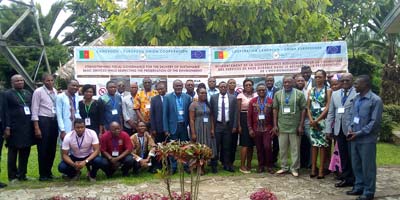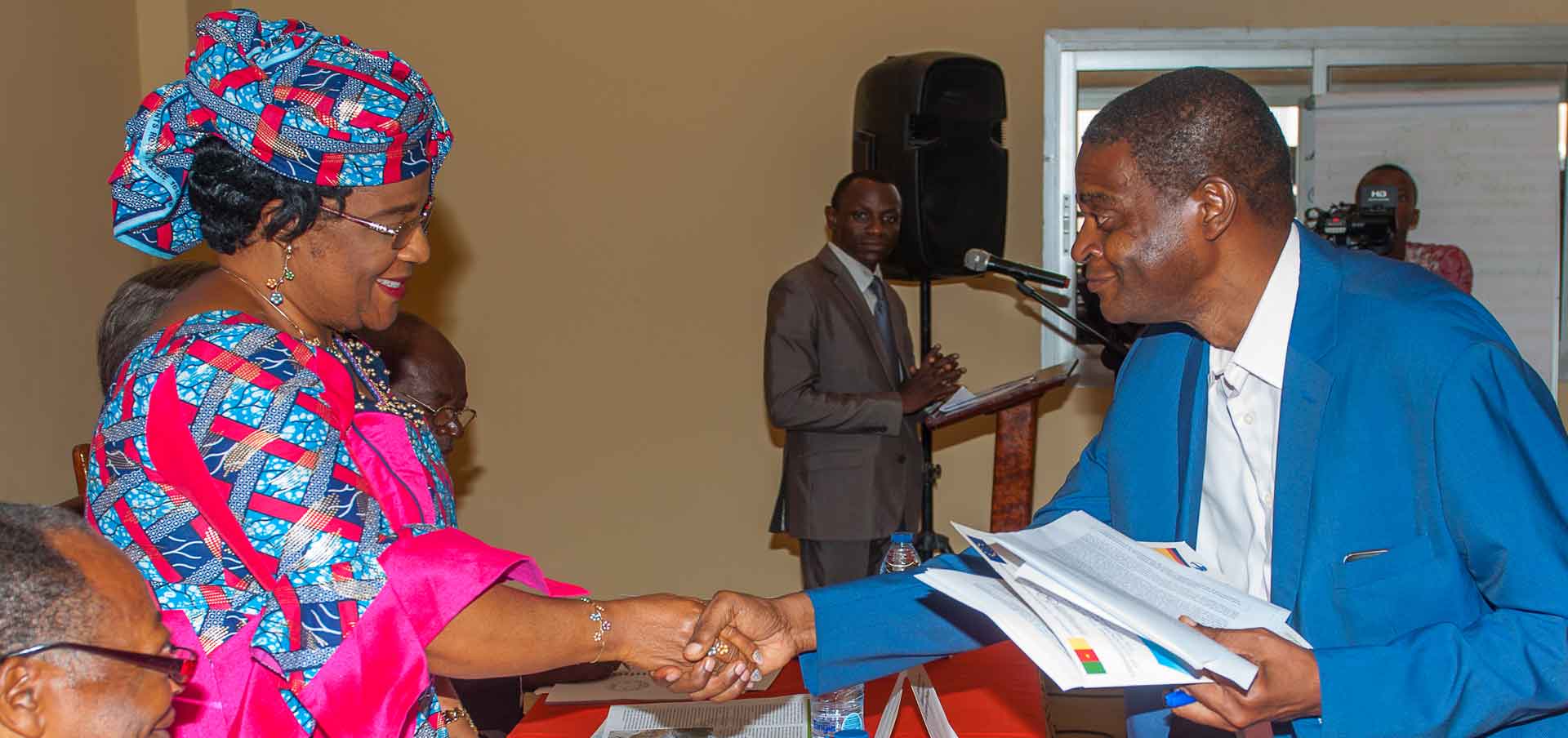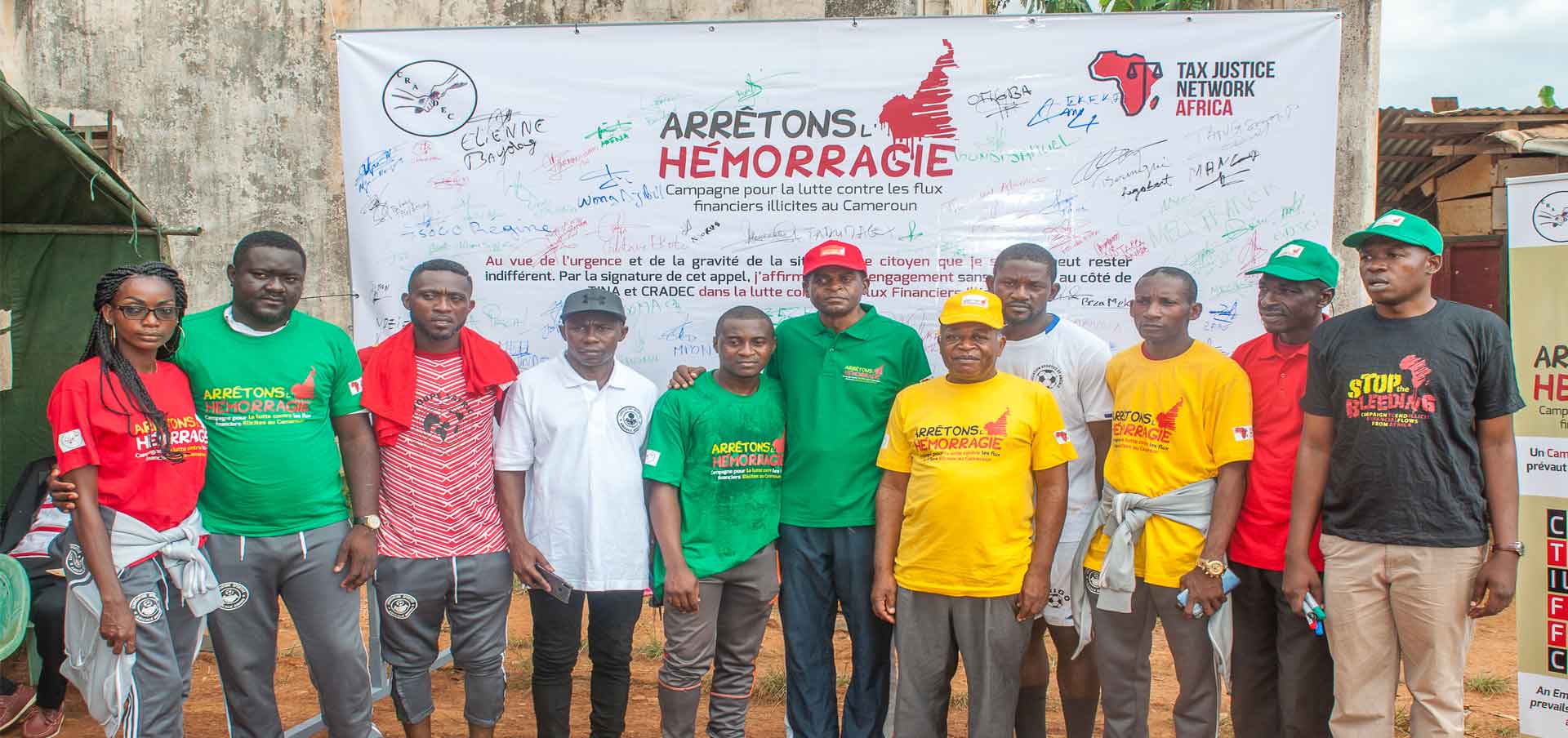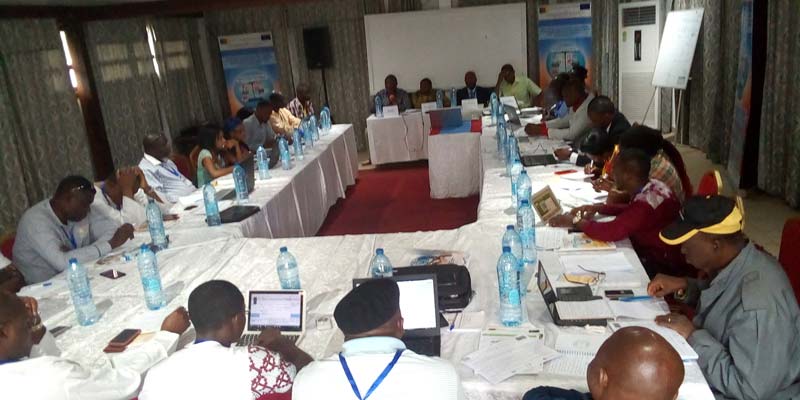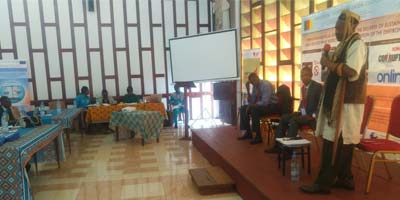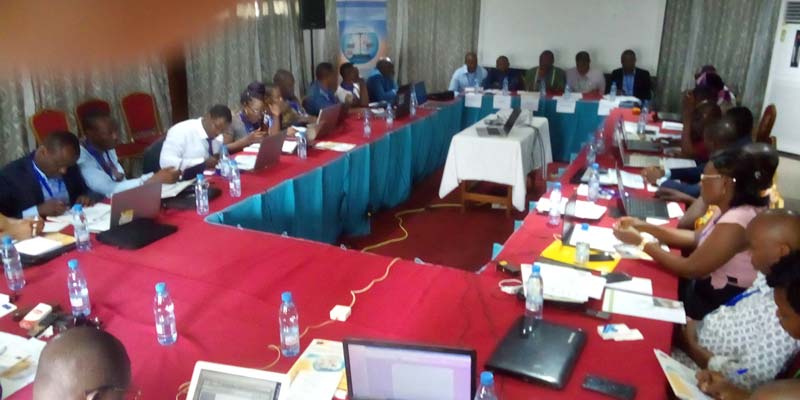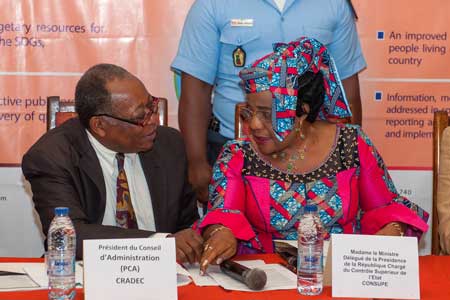
Within the framework of the Cameroon - European Union, the European Delegation in Cameroon launched in 2017, a call for proposals to support Cameroonian civil society organizations for their contribution to inclusive and sustainable growth in Cameroon. This initiative is part of the thematic program "Civil Society Organizations and Local Authorities" (2014-2020).
An integral part of the Development Cooperation Instrument (DCI), it is guided by the Communication from the European Commission (COM): The roots of democracy and sustainable development: Europe's engagement with the civil society in the field of external relations. From the Multi-Year Indicative Program, in which the conviction of a predominant place of a capable, well-structured, responsible and conscious local civil society is affirmed for the proper functioning of democracy and an asset in itself, The European Union wants to support the contributions that CSOs can make to improve governance and accountability, in particular through its contribution to the development and implementation of inclusive policies.
Hence the interest in actions that put citizens and populations in the capacity to structure and express their collective demands, to fight against injustices and inequalities, to benefit from quality social services, from the wealth that can be produced and job creation. The promotion of a favorable environment for civil society organizations - in its legal and operational dimensions - is a transversal element of the program. This is how the action "Strengthening Fiscal Governance for the delivery of sustainable basic services while respecting the preservation of the environment" led by the Consortium "ADIN, AfroLeadership, CRADEC, Dynamique Mondiale des Jeunes, Transparency International-Cameroon ” with CRADEC ensuring the Lead has has benefited from a subsidy.
I. Context and Justification of the workshop
As part of the formulation of the action, the Consortium of CSOs carrying the project and the Delegation of the European Union Commission in Cameroon, have agreed on the scope and place of the interdependent themes developed in relation to the strategy of national development. It is :
(i) the fight against illicit financial flows for optimal financing of the national economy;
(ii) transparency in the procurement process of the public investment budget for a good quality of spending in line with the essential needs of the populations;
(iii) compliance with the principle of social and environmental responsibility in mining by extractive companies and
(iv) monitoring and accountability in the implementation of the sustainable development goals of the United Nations 2030 agenda.
The December 2015 report by Global Financial Integrity (GFI) "Illicit financial flows from developing countries: 2004-2013", highlights that Cameroon is deprived of an average of 752 million US dollars annually. More specifically, trade flowed over the period from 2003 to 2014, a bleeding in illicit financial flows valued on average at 6% of total exports. These financial volumes negatively affect the achievement of national development objectives in terms of education, health, basic infrastructure, water, electricity, etc. The action aims to reduce on average one percent of this bleeding in exports, building on progress in transparency in the extractive industries, good governance in public finance in Cameroon.
The transparency and accountability that are factors in promoting and cultivating good governance are conditioned by the generation, verification, comparison and publication of data on the public procurement chain. Law n ° 2018/366 of 20/06/2018 on the public procurement code, although dealing with the dematerialization of the procurement procedure, does not contain provisions relating to the opening of data at all stages. The execution of the public investment budget must meet the needs for public services in quantity and quality of the populations at the base. On this principle, the population finds that the level of transparency in the public procurement chain for the provision of essential basic services is low, if not zero. This results in a lack of traceability of the information from the call for tenders to the receipt of the contract through the execution of the contract. The target of the action is at least 16% of the 360 municipalities which perceive transparency in the procurement system which concerns them. This will have a considerable effect on the quality of budget expenditure, based on the promotion of a data opening standard with a focus on public contracts (Open Contracting Data Standard / OCDS), for more transparency and efficiency in this sector.
Mining activity certainly represents enormous economic challenges for the State and the population. However, it has negative consequences for water resources, air quality, wildlife, soil quality, climate change. The legal and regulatory environmental framework from 1996 to 2016 has constantly evolved providing for new provisions for a more responsible mining sector. However, there are limits on the one hand, the fact that the occurrence of mining activities in semi mechanization was not taken into account in the 2001 code and on the other hand, the taking into account of this type activities in the new code of 2016, is not yet effective, due to the absence of the implementing decree. With regard to respect for environmental preservation, we observe, for example, that the fairground hearings within the framework of the licensing process for mining and quarrying are organized in places far from the populations directly affected by the mine.
Therefore, it is difficult to develop a specification that takes into account the concerns of the populations. Monitoring must be done to monitor compliance with mitigation measures and make proposals to harmonize the environmental and mining provisions that reflect the realities of the extractive sector. This will allow the development of a dashboard to measure the national implementation of VMA through indicators on the environmental and social responsibility of operating companies, for better living conditions of the populations living near mining sites. and Cameroon in general. The action would like to change the situation by ensuring that at least 50% of the fairground audiences are held in the villages bordering the exploitation sites, thus leading to greater respect for their specifications for environmental and social management plans by mining operators.
Monitoring and Accountability in the implementation of the SDGs is the confluence of the three thematic objectives. It will enable civil society, through the various existing and developing tools, to contribute to the generation and presentation of the qualitative and / or quantitative indicators simplified for the different targets in the national report on the implementation of the SDGs in Cameroon. The new global development framework, unlike the MDGs, was based on an extensive process of consultations with stakeholders, including CSOs, in order to respond effectively to people's expectations.
From the vision "The world we want" to the reality "Leave no one behind" of the 2030 agenda, action makes the Municipality (Decentralized Territorial Collectivity) within the meaning of Cameroonian legislation the unit for implementation, monitoring and evaluation of the SDGs. Therefore, it will be important to measure the level of participation of populations in the implementation of the SDGs. At least 16% of the Communes have a Monitoring and Accountability Supervision Framework in the implementation of the SDGs and are integrated into the national system for implementing the SDGs.
In order to materialize the start of the activities of the action, the project planned a launching workshop bringing together a certain number and categories of stakeholders.
II. Aims of the workshop
In general, the objective of the workshop is to initiate the process of raising awareness, raising awareness, building technical and operational capacities and dialogue between civil society organizations and citizens on the facts, trends and impacts of thematic on sustainable development goals.
More specifically, it is about:
• Present the project in its objectives, the desired results and changes and the implementation strategy;
• Explain the different articulations and interactions of the themes with a view to achieving the objectives and expected results;
• Appreciate the perception of the themes of the action by the target groups or stakeholders and identify synergies.




